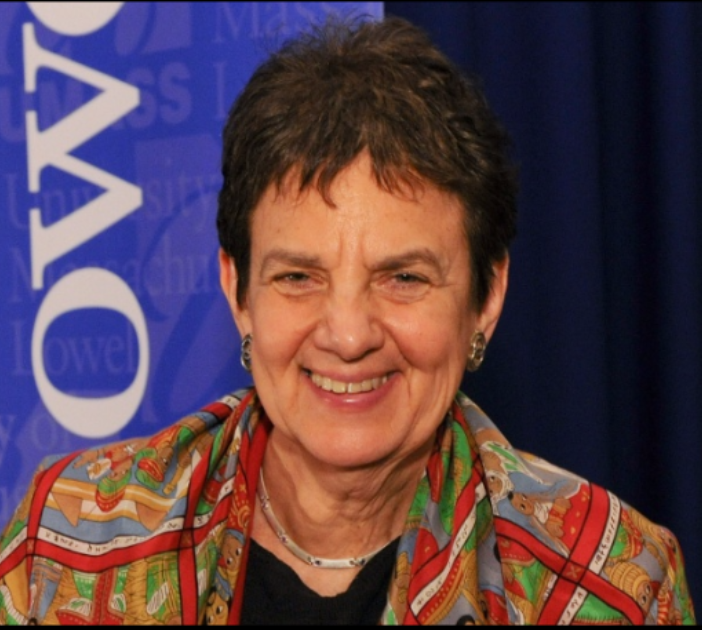
Paula Rayman, of Watertown, is the director of the Middle East Center for Peace, Development and Culture at UMass-Lowell.
Watertown’s Paula Rayman has made a career studying on ways to bring peace to the Middle East, and she found it can be done so not with more military intervention, but by providing stronger economic situations and stronger families. The key to a strong family, she said, is providing help to mothers.
Rayman will be talking about her work, and specifically why women’s voices should be stronger in peace negotiations, at an event sponsored by Watertown Citizens for Peace, Justice & the Environment at the Watertown Free Public Library on Wednesday, May 11 at 7 p.m.
She was part of the group that recently published a student for the United State Institute of Peace looking at how the UN Security Council Resolution 1325, which seeks to end violence against women, and promote women’s equity. It also made rape a war crime and required women to make up 50 percent of any peace negotiating team.
To find out how the efforts have progressed since UNSCR 1325 passed in 2000, Rayman and other researchers interviewed women in five countries around the Middle East and North Africa – Egypt, Iraq, Israel, Palestine and Tunisia.
“I traveled to Israel and Palestine, but because of the situation was so tense, the State Department recommended not going to Egypt and Iraq,” Rayman said. “So we did it by Skype.”
UNSCR had a local office in Tunisia to do those interviews.
The interviews revealed that some had heard about UNSCR 1325, but there was little progress toward the goals. She notes that the U.S. adopted a National Action Plan toward meeting UNSCR 1325 (which Middle Eastern nations have) but no one knows about it.
When she talked to the women about how the U.S. and other nations can help the situation in the Middle East, they talked about the basics.
“They said, Paula, can you get shoes for my kids so they can go to school,” Rayman said.
After World War II, the Allies invested heavily in rebuilding Germany and Japan, and Rayman said similar measures should be taken in the Middle East.
“They have lived through so many cycles of violence,” Rayman said. “They said, please help us avoid another cycle of violence.”
Changing the way people think about building national security is important, Rayman said.
“For so long when people thought about security they thought of it coming from the barrel of a gun, or the level of GNP going to defense,” Rayman said. “Real national security comes from real justice and more equality.”
Rayman has a long history working on peace issues. She is director of the Middle East Center for Peace, Development and Culture at UMass-Lowell and founded the Peace and Conflict Studies Program in the UMass system. The program gets half its students from areas of conflict, she said.